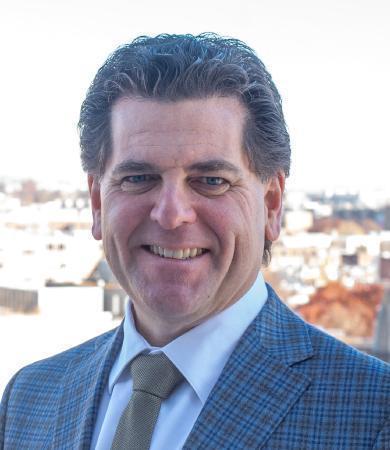Up Front
APS 2022: Join Your Peers in Chicago for In-Person Science!


Has COVID-19 left you feeling out of the loop? APS has a solution that will help you re-engage with friends and colleagues in new and exciting ways while also connecting with future collaborators, mentors, students, and friends. I am referring to the 2022 APS Annual Convention (psychologicalscience.org/convention2022), May 26 through 29 in Chicago, Illinois. We are excited to once again meet in person, and we invite you to share your research and join your peers for this unparalleled scientific conference.
After 2 long years of global COVID-induced isolation and Zoom-a-thons, it has become clear that although virtual platforms provide some wonderful opportunities and benefits for communicating, they are not the same as in-person meetings, with their many opportunities for social engagement and serendipity. After talking with meeting partners and APS members and carefully considering the limitations imposed by overlaying a virtual program onto an in-person conference to create a “hybrid” meeting, APS determined that we can best serve our members and advance our science by planning the 2022 APS Annual Convention as an in-person scientific conference.
The Convention Programming Committee, chaired by Ethan Kross, has been working hard to build an outstanding scientific program. Members of the APS Board of Directors, staff, and our partner organizations are planning plenary sessions and designing engaging new program elements including social gatherings, networking opportunities, and interactive workshops. By popular demand, we will continue to offer “flash talks” as a way for researchers to share their science outside of traditional sessions. The convention is also an ideal opportunity to recognize and celebrate the accomplishments of our distinguished colleagues who have shaped and will continue to shape the future of psychological science.
In addition to providing a vibrant forum for scientific engagement, the in-person convention allows APS to deliver the affordable and high-quality program our members have come to expect. To provide greater opportunities for students to participate, we are pleased to offer various forms of travel assistance. I invite APS members to join me in donating to the APS Student Travel Fund (member.psychologicalscience.org/donate) to help support the professional development of the next generation of psychological scientists.
We understand that some individuals will unfortunately not be able to join us in Chicago. This is one of the reasons that APS has launched and is expanding our virtual programing (psychologicalscience.org/conventions/virtual). Largely decoupled from the annual convention, virtual programs provide opportunities for psychological scientists to connect with colleagues around the world throughout the year. In addition to networking opportunities (psychologicalscience.org/networking), our virtual programs include webinars where participants can share their science, engage with research funders and policymakers, and collaborate with colleagues to tackle societal problems—for example, through the APS Global Collaboration on COVID-19. These are just some of the ways APS is supporting virtual engagement. Throughout 2022, APS will continue to explore ways to produce a rich mix of in-person and virtual offerings that provide our members with the tools and resources you want and need to advance your careers and science. As always, we welcome your suggestions.
See you at the Hyatt Regency Chicago!
Robert E. Gropp, PhD
Executive Director





APS regularly opens certain online articles for discussion on our website. Effective February 2021, you must be a logged-in APS member to post comments. By posting a comment, you agree to our Community Guidelines and the display of your profile information, including your name and affiliation. Any opinions, findings, conclusions, or recommendations present in article comments are those of the writers and do not necessarily reflect the views of APS or the article’s author. For more information, please see our Community Guidelines.
Please login with your APS account to comment.